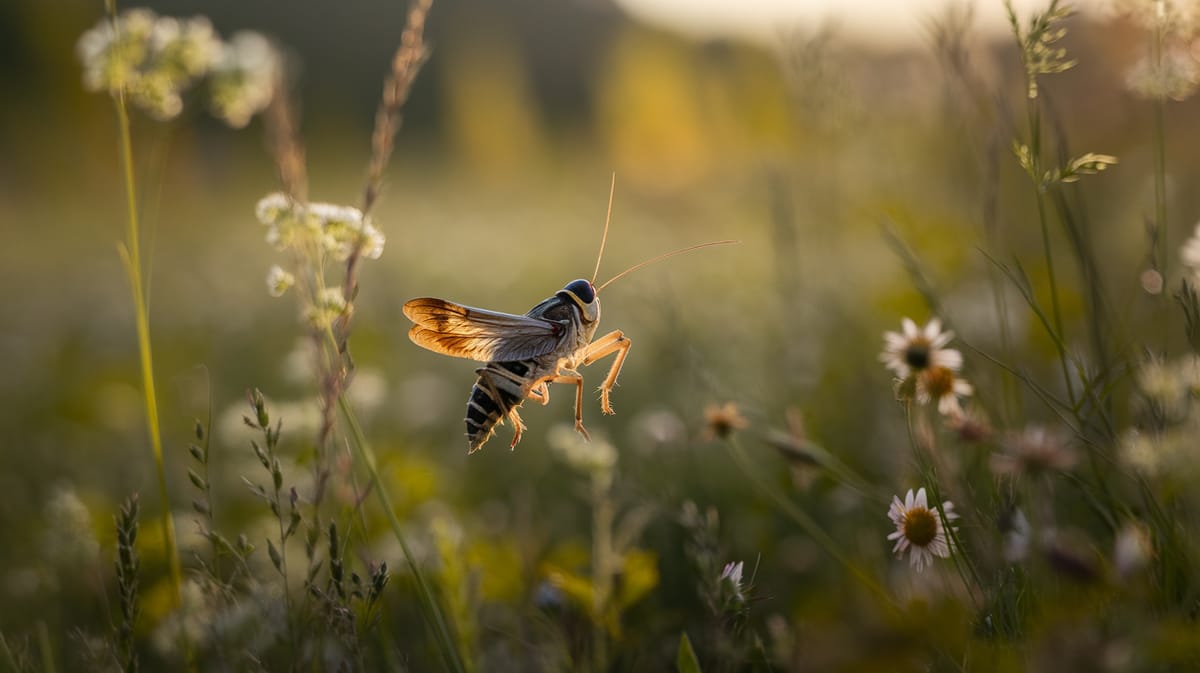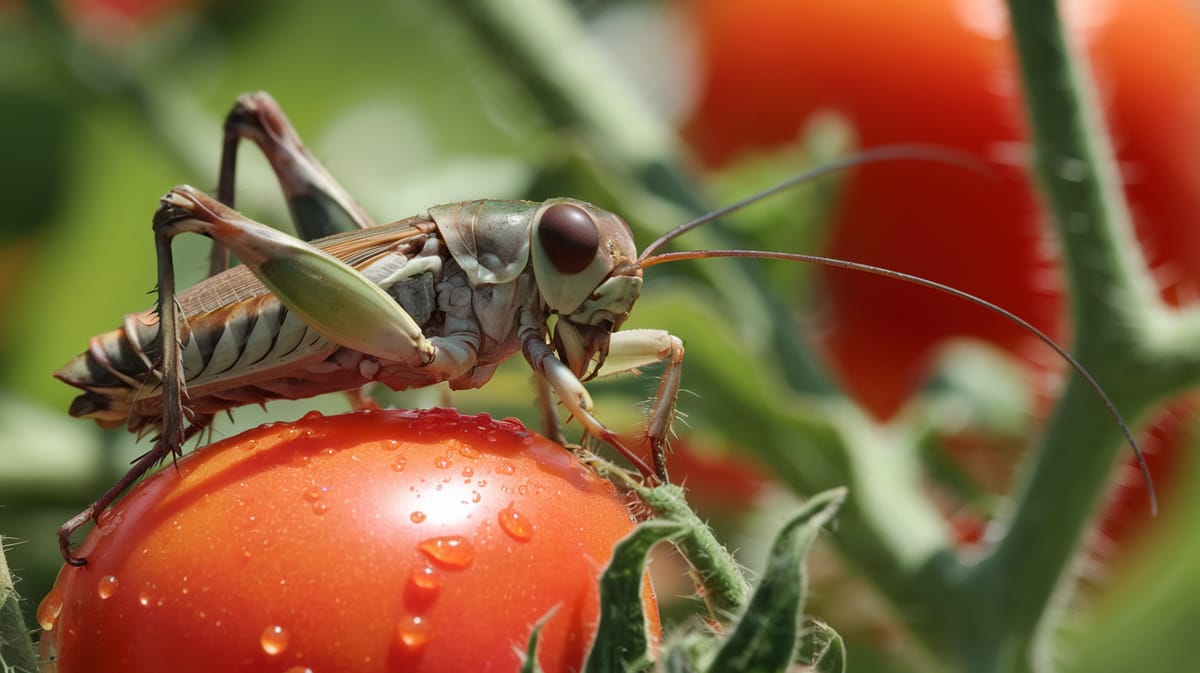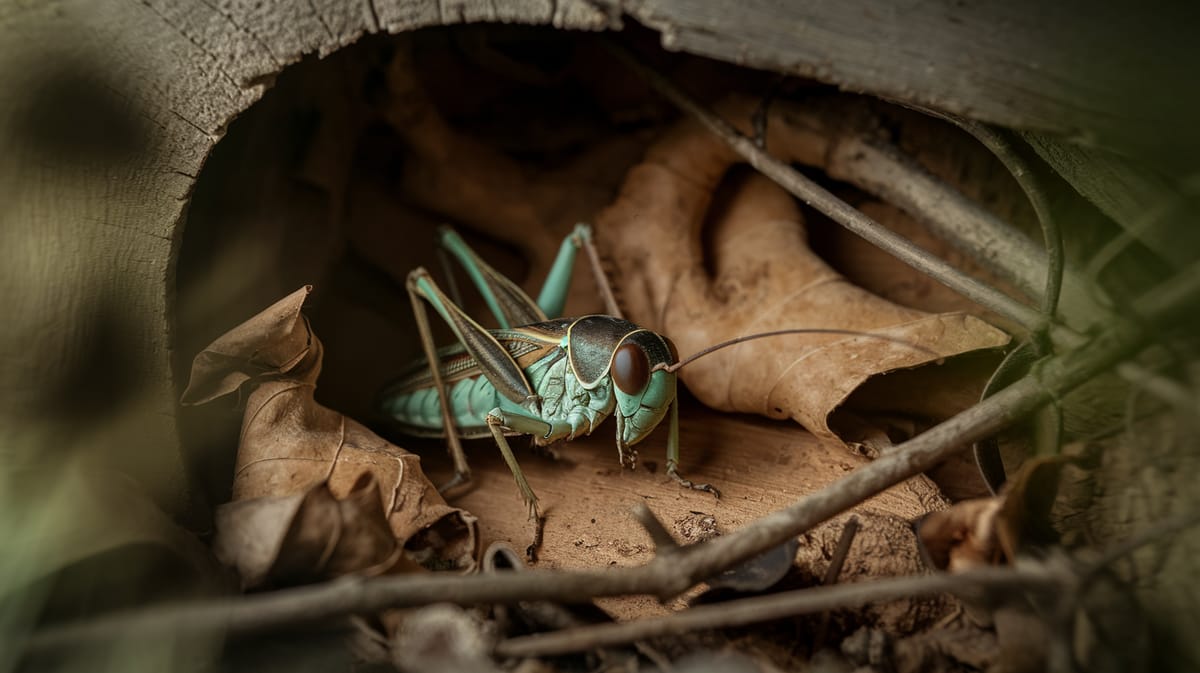Cricket
Chirping through the night, crickets are nature's musicians, known for their soothing songs. These insects play a vital role in ecosystems by enriching soil and serving as food for various predators.

Key Insights at a Glance
Did You Know?
Taxonomy & Classification
Crickets are renowned for their distinctive chirping, which plays a crucial role in their mating rituals and communication, highlighting their evolutionary adaptability and social behaviors. Let's understand the evolutionary journey and classification of these remarkable decomposers, herbivores.
Global Presence
With over 900 species in the Gryllidae family, crickets have adapted to a wide range of habitats across the globe.
Resilient Evolution
Crickets have survived since the Triassic period, adapting to changes over millions of years, showcasing their evolutionary resilience.
Lifecycle and Growth
A remarkable journey of transformation from Egg to Adult.
Egg
Laid in soil, cricket eggs hatch in warm conditions, initiating the lifecycle as temperature-sensitive embryos develop.
Nymph
Nymphs resemble small adults and molt multiple times, gradually acquiring adult features like wings and reproductive organs.
Adult
Adults exhibit full wings and engage in chirping to attract mates, completing the reproductive cycle.
Dietary Habits
A versatile forager displaying diverse feeding habits, this insect primarily consumes plant matter, small insects, and occasionally scavenges.
| DIET TYPE | DESCRIPTION |
|---|---|
| Primary Diet | Primarily feeds on a variety of plant materials, including leaves, stems, and tender shoots. |
| Secondary Diet | Also eats small insects like aphids and caterpillars when plant sources are scarce. |
| Occasional | Occasionally scavenges on decaying matter or food waste, especially during food shortages. |

Behaviour and Adaptations
Discover the fascinating adaptations that make the Cricket a master of its environment.
Sound Communication
Crickets use chirping to attract mates and establish territory.
Jumping Agility
Powerful hind legs enable quick escapes from predators.
Nocturnal Activity
Active at night to avoid daytime predators.
Ecosystem Impact
Crickets play a vital role in maintaining ecological balance by supporting various ecosystem functions.
Nutrient Recycler
Breaks down plant material, enriching the soil with nutrients.
Food Chain Link
Serves as prey for birds, reptiles, and small mammals.
Seed Disperser
Aids in the spread of seeds, promoting plant diversity.
Conservation Challenges
Conservation Challenges: Understanding and addressing the major threats to Cricket populations.
Habitat Loss
Urban development and agriculture are reducing natural cricket habitats.
Chemical Exposure
Pesticides and pollutants are harming cricket populations and ecosystems.
Climate Change
Changing weather patterns disrupt breeding and survival.
Frequently Asked Questions
How long do Cricket live?
Crickets typically live for about 8 to 10 weeks. Their lifecycle includes egg, nymph, and adult stages. Environmental factors such as temperature and humidity can influence their lifespan.
What do Cricket eat?
Crickets are omnivores and eat a variety of foods including plants, fruits, seeds, and small insects. They are also known to consume decaying organic matter. In captivity, they can be fed vegetables, grains, and specially formulated cricket feed.
Are Cricket poisonous?
Crickets are not poisonous to humans or pets. They do not produce toxins that pose a threat. However, large infestations can cause damage to plants and fabrics.
Are Cricket endangered?
Most cricket species are not endangered. They are generally abundant in their habitats. Some specific species may face threats due to habitat loss and environmental changes, but crickets as a whole are not at risk.
What do Cricket symbolize?
Crickets often symbolize good luck, fortune, and happiness in various cultures. In some traditions, their presence is considered a sign of prosperity and protection against evil spirits.
Do Cricket bite?
Crickets can bite, but it's rare and usually harmless to humans. They have mandibles for chewing plant material and do not seek out humans to bite. Their bites are not venomous or dangerous.
What color are Cricket?
Crickets are usually brown or black, though their color can vary slightly depending on the species. Some may have lighter or darker shades, and certain species may exhibit green or yellow hues.
Does a Cricket have wings?
Yes, crickets have wings. Most species have two pairs of wings, with the front pair being tougher and used for protection and the hind pair for flying. Not all crickets are strong fliers, though.
What does a Cricket look like?
Crickets have long antennae, a cylindrical body, large hind legs for jumping, and wings that may cover part of their abdomen. They range in size from about 15 to 25 millimeters and have a distinctive chirping sound.
Is a Cricket an insect?
Yes, a cricket is an insect. It belongs to the order Orthoptera, which also includes grasshoppers and katydids. Insects are characterized by having three main body parts: head, thorax, and abdomen, along with six legs and usually wings.
Related Insects
Discover insects with similar characteristics to Cricket - including shared habitats, diets, and taxonomic classifications
Share this profile
Help others discover Cricket
